Third-party integrations
Frontegg supports multiple third-party integrations for streaming logged events. The specific requirements for each integration are listed below.
Log streaming can only be used in your Production environment.
Logged events time zone
Logged events time zone
The timestamp information in the exported log is represented in ISO 8601 datetime format in Coordinated Universal Time (UTC). By parsing this value using datetime libraries, you can display the timestamp in any desired timezone.
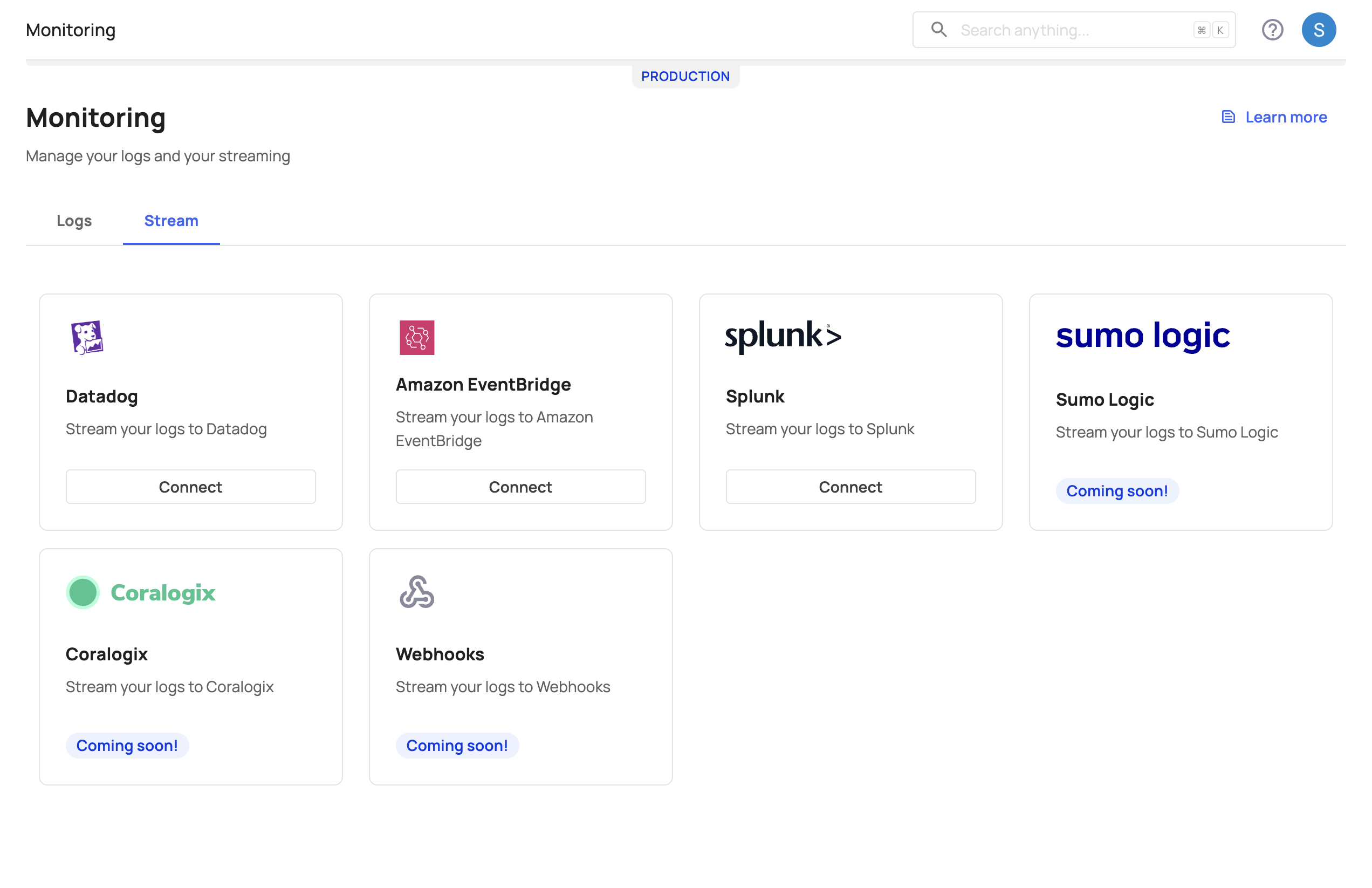
Datadog configuration
To configure Datadog for log streaming, add an API Key and Endpoint values through the path: [PRODUCTION] → Monitoring → Stream tab.
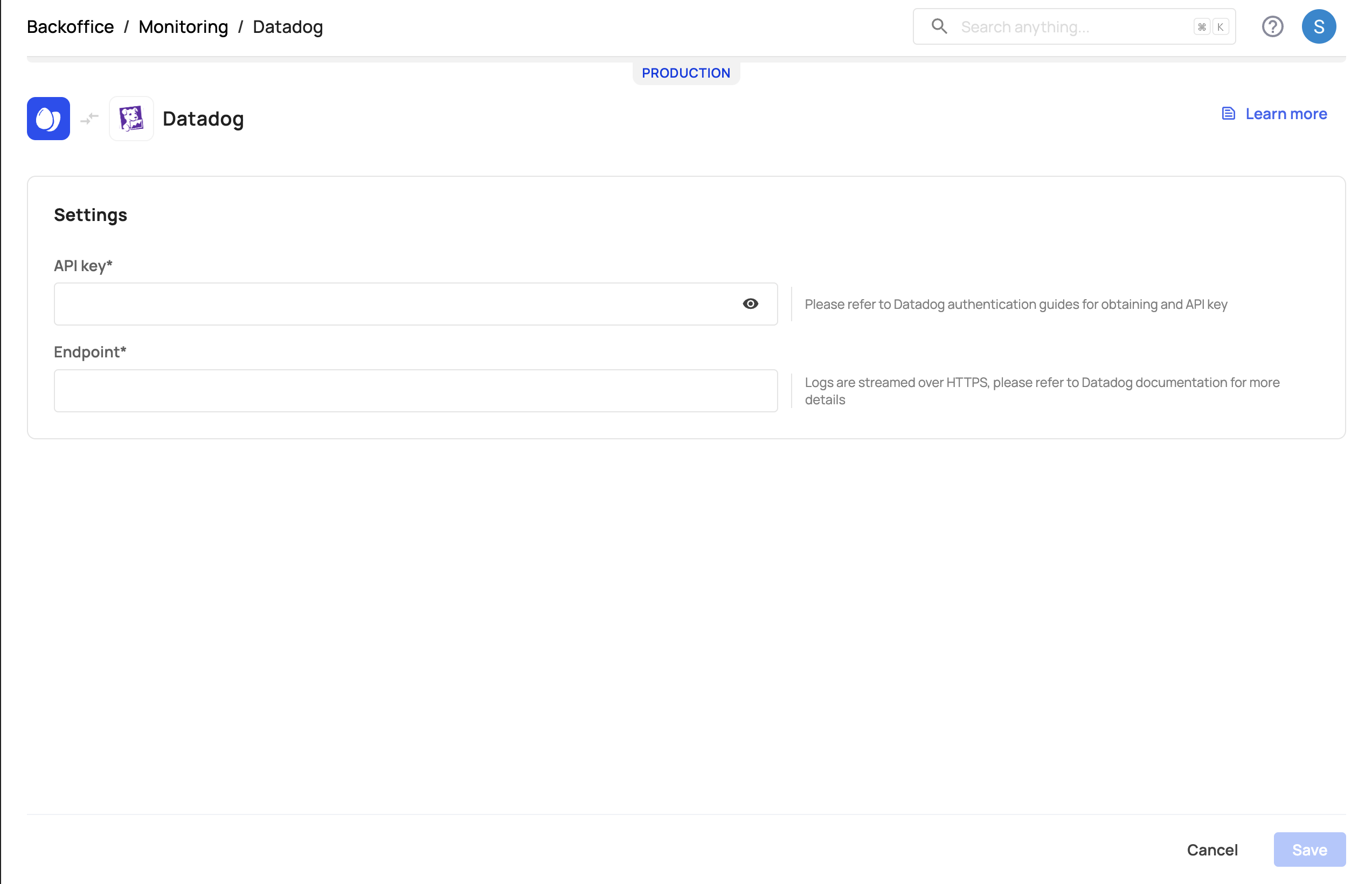
API Key: Obtain your API key by navigating to your Datadog organization settings and generating an API token. Learn more.
Endpoint: You’ll receive an HTTP Logs Collector endpoint unique to your Datadog environment upon registration. For example, if you register on US5, your endpoint will be https://http-intake.logs.us5.datadoghq.com.
AWS EventBridge configuration
To configure log streaming from Frontegg to AWS, provide the following parameters via the [PRODUCTION] → Monitoring → Stream tab:
Access key ID:
awsAccessKeyId(string, required) – Obtain this key from your Amazon account administrator.Secret access key:
awsSecretAccessKey(string, required) – Your AWS secret access key. For help with locating AWS account identifiers, use this link.Region: Choose the region hosting your Amazon EventBridge instance from the drop-down menu.
Event source:
eventSourcerepresents the Amazon EventBridge event data source (string). This defaults tocom.frontegg.monitoringunless otherwise specified.Event bus name:
eventBusName(string, optional) – This is the name or ARN of the EventBridge instance. If skipped, Frontegg will usedefault. Learn more about Amazon EventBuses.
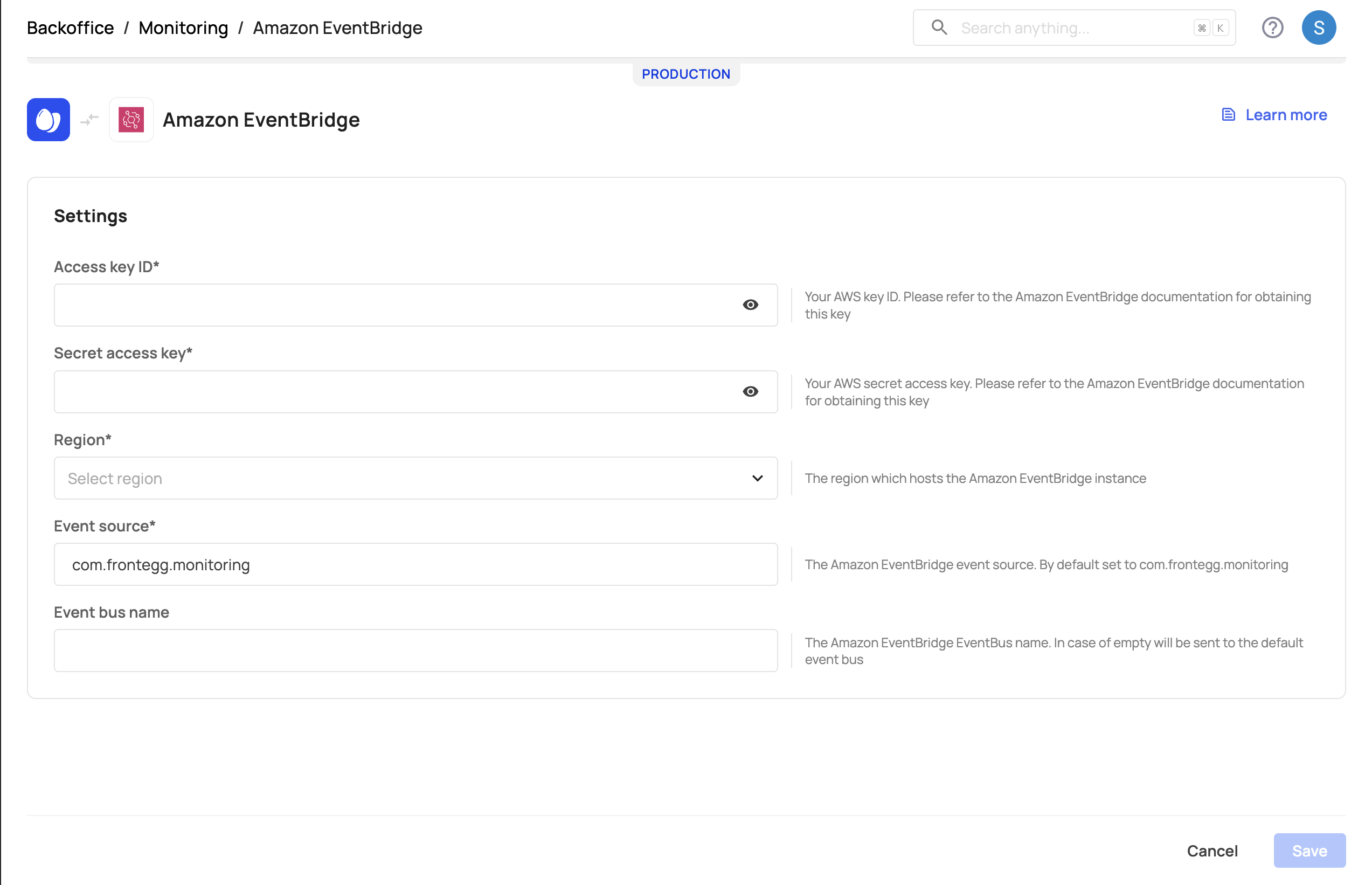
Enabling PutEvents for AWS
Enabling PutEvents for AWS
When creating an access key set for Frontegg integration, ensure that you can perform PutEvents and grant access to the EventBridge service. Since the default event bus only allows events from one account, attach a resource-based policy to allow PutEvents. Learn how to allow PutEvents.
Splunk configuration
Frontegg's Splunk integration allows log streaming to Splunk via Splunk's HTTP Event Collector (HEC). Logs are sent to your Splunk instance’s /services/collector endpoint over HTTPS. Below are configuration details for Splunk Cloud and Splunk Enterprise users.
Splunk Cloud platform users
To stream logs to Splunk’s Cloud platform, add the following fields via the [PRODUCTION] → Monitoring → Stream tab:
Token: The HEC token value.
Host: This is the URL of Splunk’s Cloud Platform instance running HEC, usually ending with
splunkcloud.com.Port: Frontegg uses port 443 by default, unless otherwise specified.
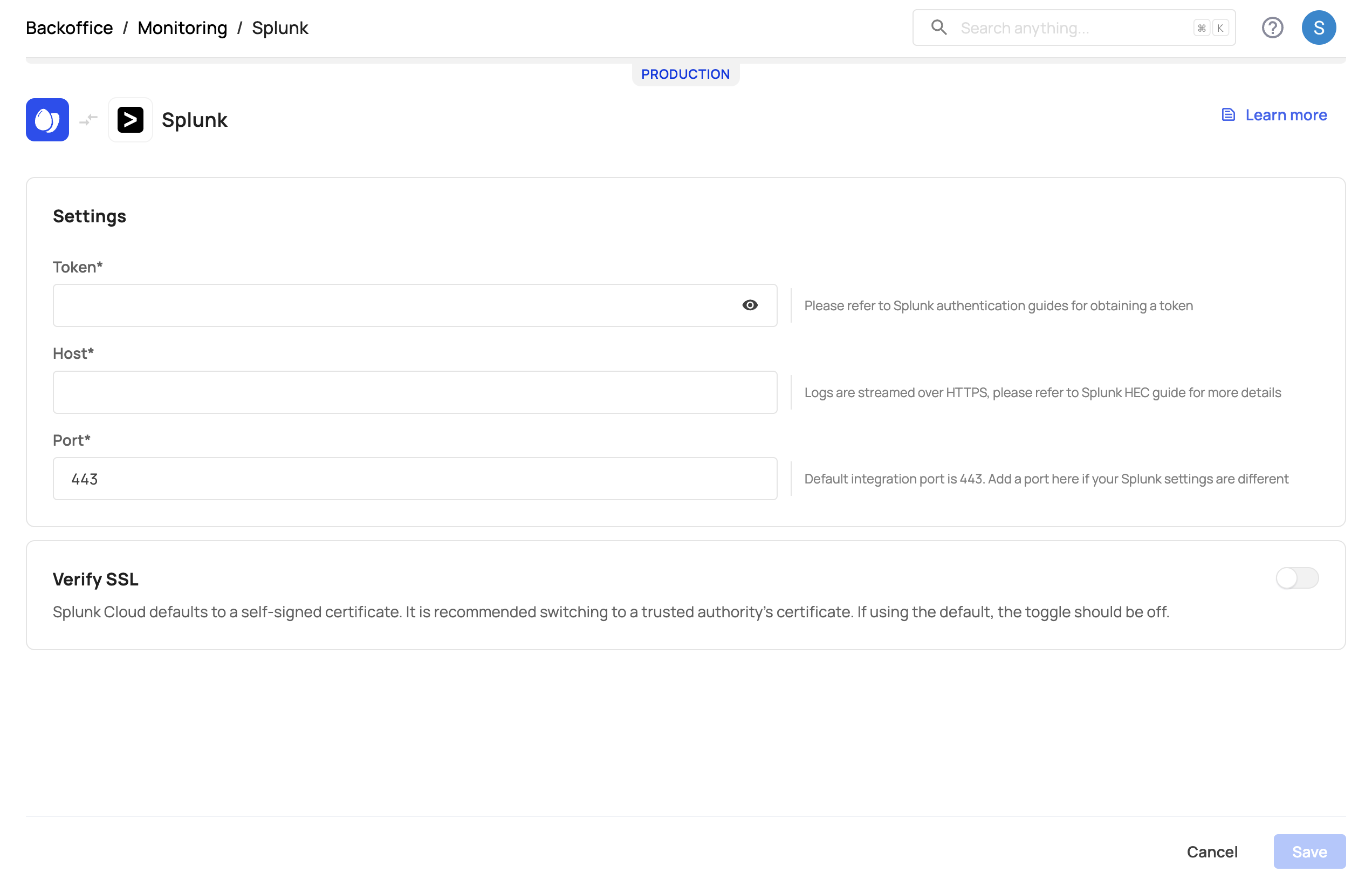
Verify SSL on the Cloud Platform
Verify SSL on the Cloud Platform
Splunk Cloud defaults to a self-signed certificate. It’s recommended to switch to a trusted certificate authority. If using the default, the toggle should be off.
Splunk Cloud Event Collector
Splunk Cloud Event Collector
Splunk enterprise platform users
To stream logs to Splunk’s Enterprise platform, configure the following fields:
Host: This is the URL of Splunk’s Enterprise platform instance running HEC.
Port: Frontegg uses port 443 by default, unless otherwise specified.
Token: The HEC token value.
Verify SSL on the Cloud Platform
Verify SSL on the Cloud Platform
Splunk Cloud uses a self-signed certificate by default. It is recommended to switch to a certificate from a trusted authority. If you continue with the default certificate, ensure that the SSL verification toggle is set to off.
Splunk Enterprise Event Collector
Splunk Enterprise Event Collector
Sumo Logic configuration
Frontegg's Sumo Logic integration allows you to stream logs to Sumo Logic via Sumo Logic's HTTP Logs and Metrics Source.
Logs will be sent to your Sumo Logic instance's over HTTPS using the token that is included in the URL that is generated during setup of HTTP collector on Sumo Logic.
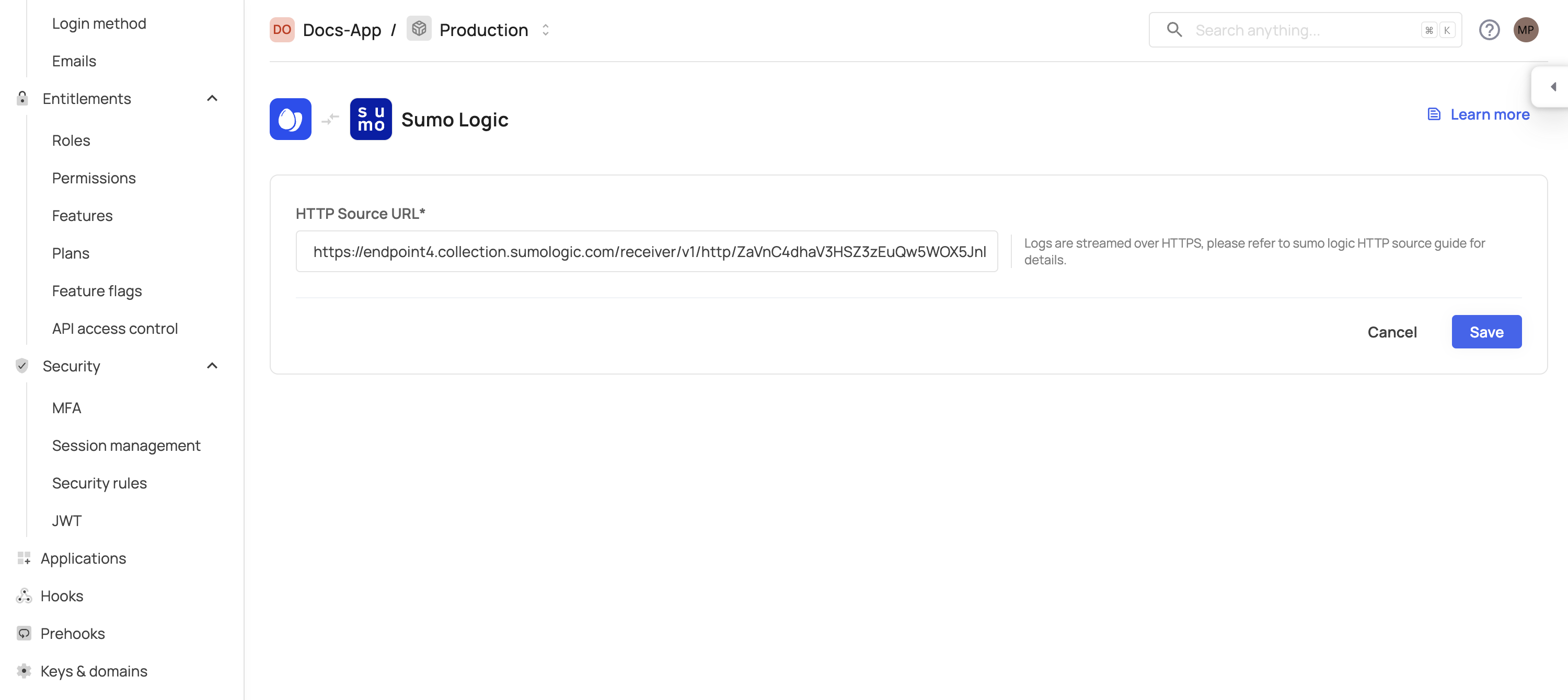
Coralogix configuration
To configure Coralogix for log streaming, add an API Key and Endpoint values through the path: [PRODUCTION] → Monitoring → Stream tab.
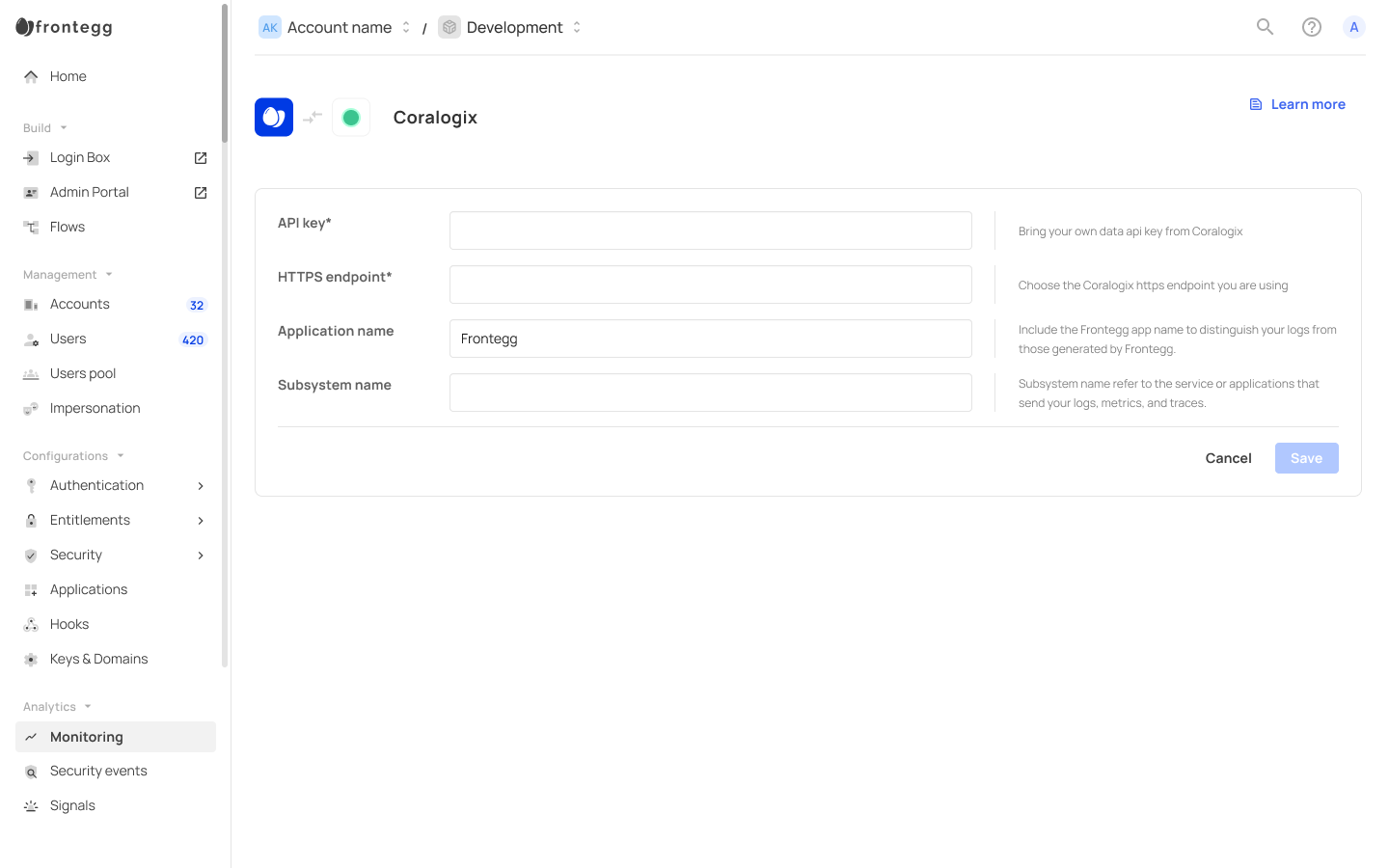
Required fields
- API Key: Obtain your API key by navigating to your Coralogix account settings and generating an API token. You can also create multiple API keys with advanced security settings as described here.
- HTTPS Endpoint: Select the appropriate HTTP Logs Collector endpoint based on your Coralogix environment as specified here.
- Application Name: Define a unique identifier for your application (string).
- Subsystem Name: Refers to the service or application that sends your logs, metrics, and traces. This helps in categorizing and organizing logs.
You can learn more about Application and Subsystem names here.